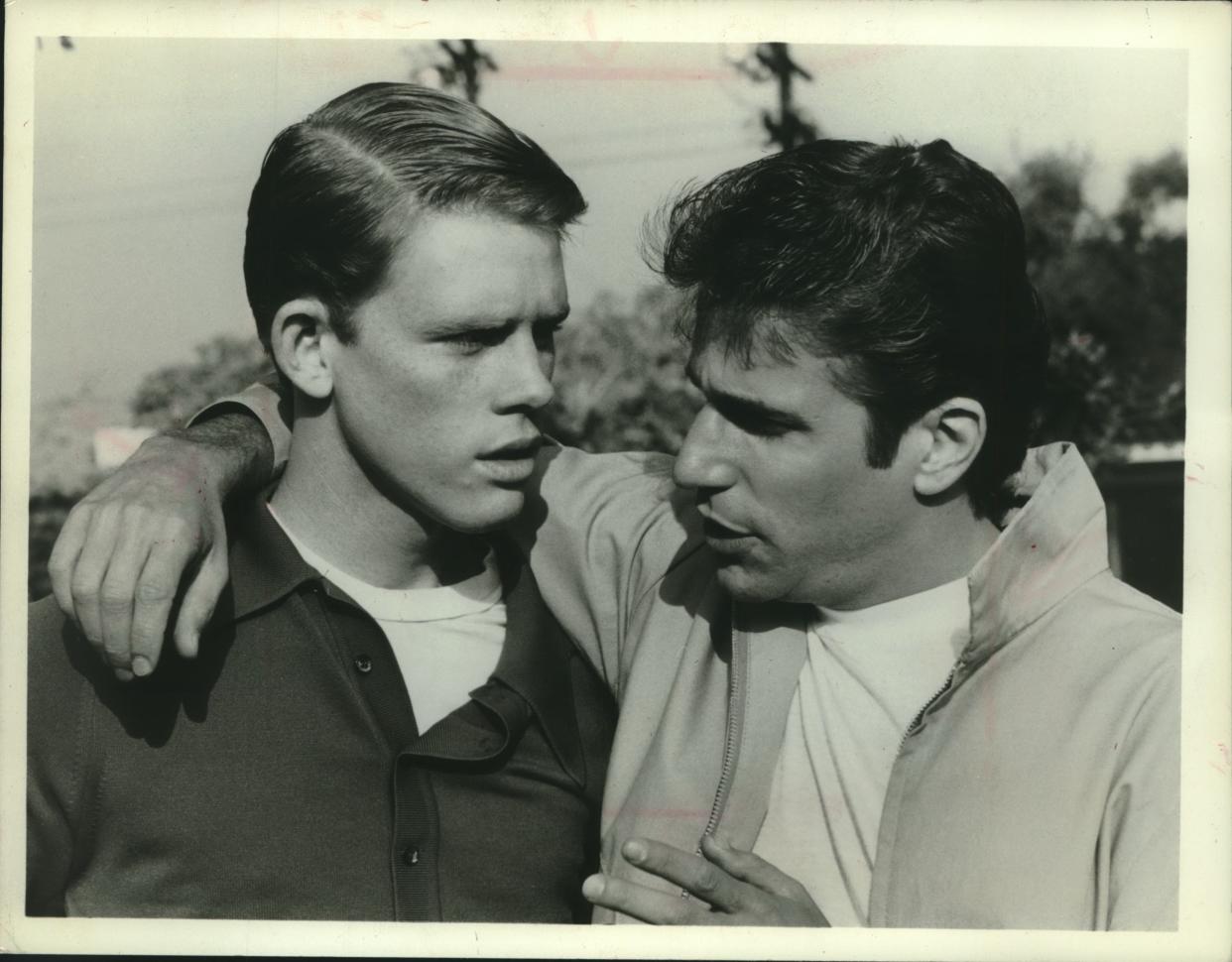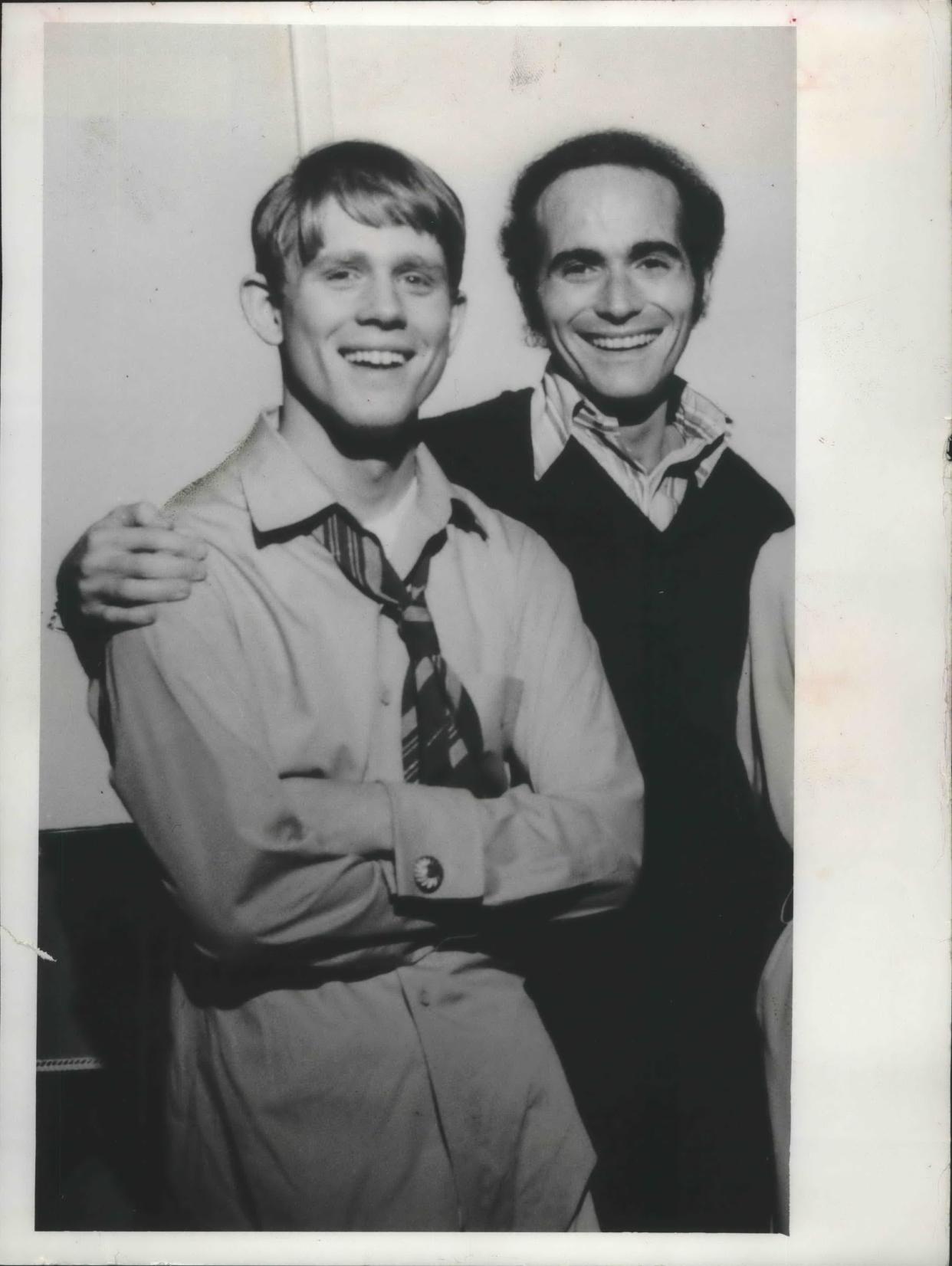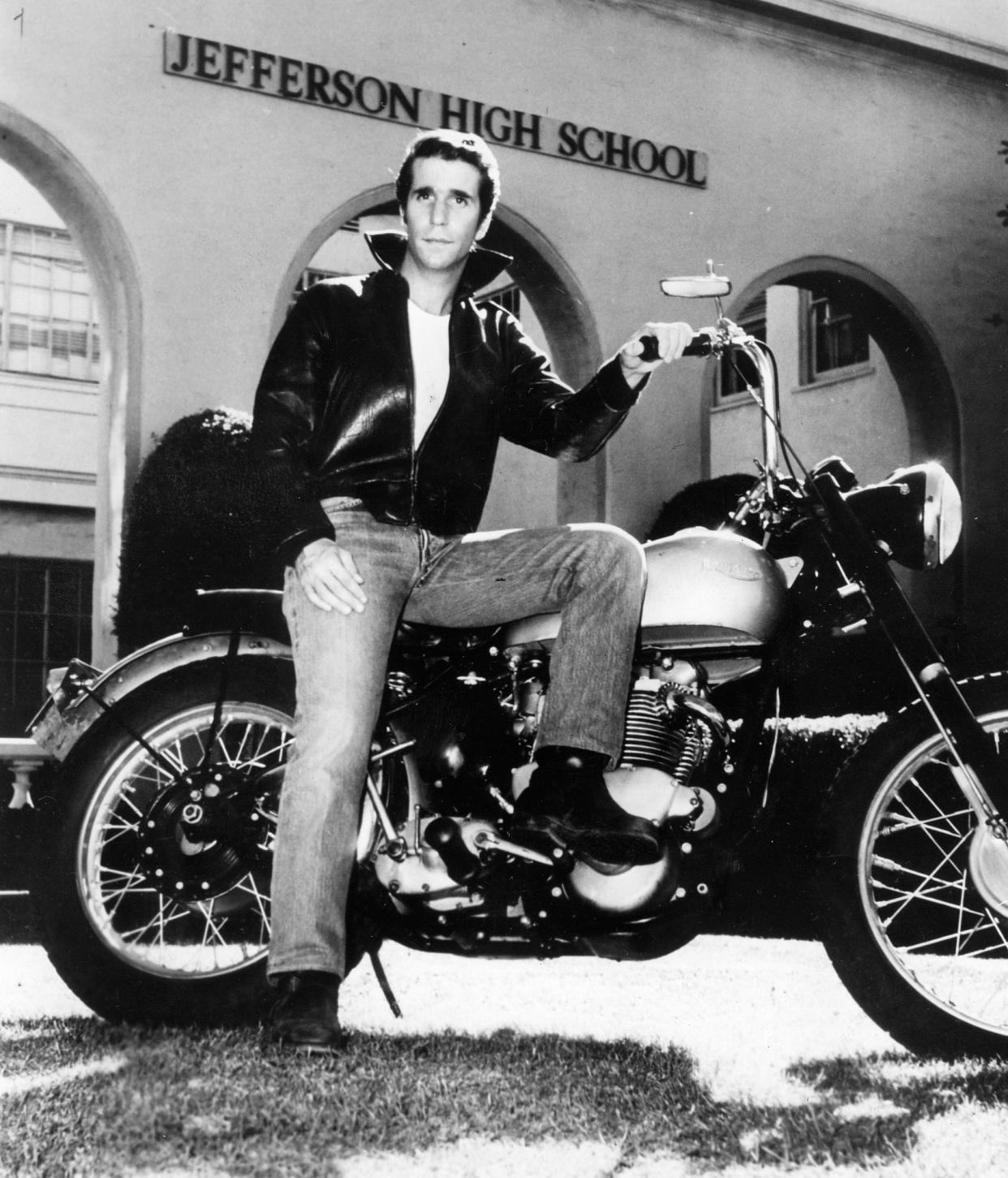'Happy Days' finally made Milwaukee ready for prime time. But it didn't start that way.
"Happy Days," which made its television debut 50 years ago this week, was of course set in Milwaukee.
Except it wasn't. At least, not at first.
Today, the sitcom about the Cunningham family and their travails in the 1950s and early '60s is remembered as Milwaukee's coming-out party on TV. And the city has embraced the connection.

The characters on the show have long been honorary Milwaukeeans, given parades — and, in the case of one Arthur Fonzarelli, a statue that has become one of the city's tourism touchstones.
But when the show debuted on Jan. 14, 1974, Milwaukee wasn't written into the script.
In that first season — actually, a half-season, since it was a midseason replacement — "Happy Days" was set in a generic, sort-of-Middle-America town. But there was a single seed of Milwaukee-ness planted in it, courtesy of the Milwaukee native who had come up with the idea for the show.
Thomas L. Miller, who graduated from Nicolet High School in 1958 and went on to a successful career as a writer and producer in Hollywood, based Arnold's Drive-In, a recurring setting in "Happy Days" from the start, on one of Miller's favorite teenage hangouts — the Milky Way Drive-In on North Port Washington Road in Glendale (now a Kopp's Frozen Custard location).

While Miller talked in interviews about basing the show (and Arnold's) on his childhood in Milwaukee, the 16 episodes of its first season were completely Milwaukee-free.
But they weren't controversy-free.
With a lot of focus on teenage boys pursuing teenage girls, "Happy Days" drew what would strike some observers today as a surprising amount of criticism for its racy content, particularly since the show aired at 7 p.m. on Tuesday nights (opposite one of the most adult, and highest-rated, shows of the season, CBS' "Maude").
Jim Behling, program manager at WITI-TV (Channel 6), the Milwaukee ABC affiliate at the time, told Journal TV columnist Mike Drew that he couldn't remember another show that had prompted more viewer complaints.
"These two programs are just plain filth and should be regulated to the garbage can," a Milwaukee "Mother of Five" wrote to The Journal.
But "Happy Days" was enough of a hit that ABC renewed it for a full season less than three months after it debuted. Soon after, Miller told Journal TV Screen Editor Wade H. Mosby that Season 2 of the show would have a more pronounced Milwaukee accent than the first season.

"Our feeling is that the public wants its TV families to have roots," Miller said. "Mary Tyler Moore's show is based in Minneapolis, Bob Newhart's in Chicago, ours in Milwaukee. There'll be references to Milwaukee and no doubt that it's our locale."
What there wouldn't be, Miller said, were actual scenes and images shot in Milwaukee.
"I had hoped to do some location scenes in Milwaukee for the blackouts we have in the main title," he told Mosby. "But it would have been just too expensive. We would have had to take the principals (in the cast), the director, the key camera crew, the old cars to Milwaukee, and the cost would be astronomical."
(It was left to "Laverne & Shirley," the "Happy Days" spinoff, to include a shot of Milwaukee City Hall in its opening credits when that series launched in 1976.)
RELATED: Thomas L. Miller, the TV producer whose Milwaukee upbringing inspired 'Happy Days,' has died
On a stop in Milwaukee as part of a "Happy Days" promotional tour in August 1974, Ron Howard, who played Richie Cunningham on the show, filled in the rest.
"Basically, we just talk about the (Milwaukee Braves) … Hank Aaron, Spahnie (Warren Spahn, the team's ace pitcher)," Howard told the Milwaukee Sentinel.
Among the other Milwaukee notes added to the show were snippets of Braves radio broadcasts, reconstructed from actual game reports by Earl Gillespie, the longtime voice of the Braves; and Richie Cunningham getting a job (not once but twice) with The Milwaukee Journal — first at the afternoon paper's loading dock and, near the end of the show, as a reporter (he quit the latter to go to Hollywood and be a screenwriter).
You could spot Braves pennants on the walls, and Howard Cunningham (Tom Bosley) became the Grand Poobah of the Milwaukee Leopard Lodge.
And, in a Season 7 episode first broadcast in 1980, Aaron played himself in a story about Howard getting involved with an advertising executive using shady means to promote the family hardware store.
By then, Milwaukee was firmly embedded in "Happy Days." It just had a late start in getting there.
RELATED: 'That '90s Show' and 26 other TV shows set in Wisconsin places (some of them fictional)
This article originally appeared on Milwaukee Journal Sentinel: TV's 'Happy Days' wasn't set in Milwaukee — at first
